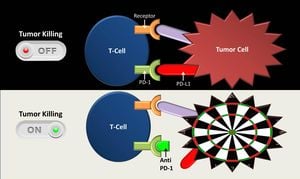On the third anniversary of Russia's invasion of Ukraine, European Commission President Ursula von der Leyen conveyed optimistic news about Ukraine's potential accession to the European Union (EU). Speaking at a press conference in Kyiv on Monday, she indicated the possibility of Ukraine joining the EU sooner than the previously anticipated 2030 deadline. "I really appreciate the political will... they could be earlier than 2030," von der Leyen asserted.
This positive outlook aligns with remarks from Lithuanian President Gitanas Nausėda, who set January 1, 2030, as his proposal for Ukraine's full-fledged EU membership. During discussions at the plenary session of Support Ukraine, Nausėda emphasized the link between Europe's security and Ukraine's future, stating, "The security of Europe depends on the security of Ukraine."
Central to this discussion is the EU's commitment to reinforcing Ukraine's national security amid its conflict with Russia. Recently, Spanish Prime Minister Pedro Sánchez announced plans for Spain to provide Ukraine with a 1-billion-euro military aid package, which complements the EU's recently unveiled 3.5-billion-euro aid package intended to offer substantial support to Kyiv.
These efforts come as EU leaders convened to deliberate on extending military and financial aid as part of broader actions aimed at fortifying Ukraine's defenses. Von der Leyen and other leaders have reiterated their commitment to maintaining solidarity with Ukraine, urging member nations to continue their support. During the press conference, von der Leyen mentioned the need for tangible reforms within Ukraine, indicating these are key to the accession process, stating, "The process is based on Ukraine’s achievements."
According to Antonio Costa, the President of the European Council, Ukraine's EU accession is not only about membership but also symbolizes the assurance of its future security. He remarked, "The EU enlargement process will include Ukraine, Moldova, and the Western Balkans," highlighting the strategic importance of Ukraine within the EU framework.
The discussions also brought attention to recent sanctions the EU has enacted against Russia, demonstrating unity among member states. Kaja Kallas, head of European diplomacy, asserted, "Ukraine must be supported more than ever... No agreement can work without us. Europe and Ukraine must agree before any deal is sealed." This emphasizes the EU's strategic position and its commitment to Ukraine’s sovereignty amid the conflict.
Further elaboration on this sentiment came from other foreign ministers, including Simon Harris from Ireland, who stated, "No peace in Ukraine without Ukraine," stressing the importance of including the Ukrainian government actively within the peace negotiation processes. This indicates not just political support but also recognition of Ukraine’s role at the negotiation table.
While discussions about the timeline for Ukraine's full EU membership and necessary reforms proceed, the EU appears poised to advocate for Ukraine's interests on multiple fronts. The convergence of significant financial commitments, alongside strategic security talks, marks a pivotal moment for both Ukraine and the EU as they navigate future challenges together.
The calculated acceleration of Ukraine's accession process, backed by substantial EU aid and military support, sets high expectations for both Ukraine's reform efforts and the EU's broader geopolitical strategy. With strong political will on display, the coming years may redefine Ukraine's path toward European integration and bring new dynamics to the continent's security architecture.



